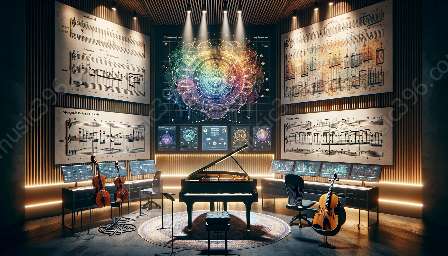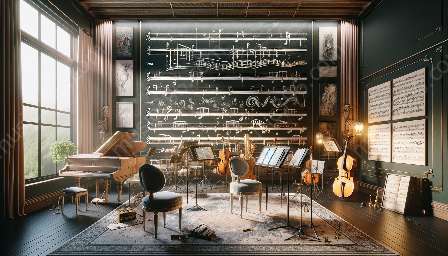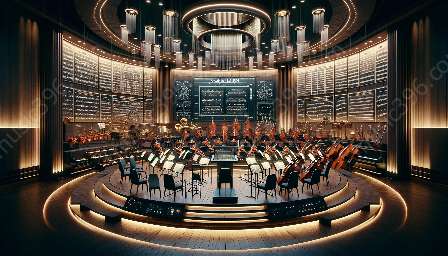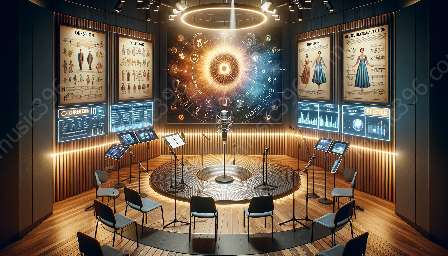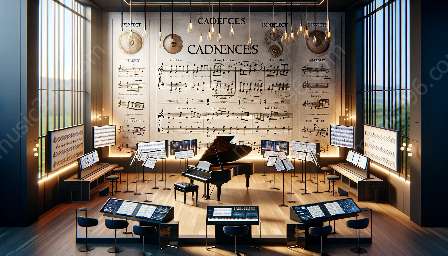When it comes to the study of musical film scores and music theory, cultural representation and diversity play crucial roles in shaping the cinematic experience. In recent years, there has been a growing focus on the influence of diverse cultural elements in film scores, acknowledging the impact of different cultural backgrounds, traditions, and perspectives on the music created for the big screen. This topic cluster will explore the intersection of cultural representation and diversity in film scores, examining their significance in the context of musical film scores and music theory.
Understanding Cultural Representation in Film Scores
The representation of diverse cultures in film scores involves the incorporation of musical elements and styles that reflect the traditions and heritage of specific cultural groups. This can include the use of traditional instruments, vocal techniques, and musical motifs that are distinctive to a particular culture. Through the art of musical film scoring, composers have the opportunity to bring authentic cultural expressions to life, enriching the storytelling and connecting audiences to diverse narratives.
The Influence of Cultural Diversity
Cultural diversity in film scores goes beyond mere representation; it encompasses the infusion of multiple cultural influences within a single musical composition. Composers often draw inspiration from a wide range of cultural sources, blending different musical traditions to create a rich and eclectic sonic palette. This process of cultural fusion not only highlights the diversity of musical expressions but also serves as a celebration of cultural interconnectedness and cross-cultural exchange.
Embracing Cultural Authenticity
Authenticity plays a pivotal role in the portrayal of cultural representation in film scores. Composers are tasked with portraying cultural identities with respect and accuracy, ensuring that the music authentically represents the traditions and values of the cultures being depicted. This commitment to authenticity fosters a deeper appreciation for cultural diversity and promotes cultural understanding through the universal language of music.
The Intersection with Music Theory
From a music theory perspective, the study of cultural representation and diversity in film scores delves into the intricate relationships between musical structures, harmonies, and rhythms within diverse cultural contexts. It involves analyzing the unique musical languages of different cultures and understanding how these languages are incorporated into film music composition. This multifaceted approach allows for a comprehensive exploration of how cultural diversity influences the theoretical aspects of musical film scoring.
Challenges and Opportunities
While the inclusion of cultural representation and diversity in film scores presents exciting opportunities for creative expression, it also comes with its own set of challenges. Composers and filmmakers must navigate the complexities of respectfully integrating diverse cultural elements without resorting to stereotypes or cultural appropriation. By addressing these challenges, the film industry can foster an environment where cultural diversity is genuinely celebrated and honored through the art of film scoring.
Impacts on Cinematic Storytelling
The impact of cultural representation and diversity in film scores extends to the realm of cinematic storytelling. Through the evocative power of music, film scores have the ability to transport audiences to different cultural landscapes, evoke emotions specific to diverse cultural experiences, and amplify the narratives of underrepresented communities. As such, film scores serve as compelling vehicles for promoting inclusivity and broadening the representation of diverse voices in cinema.
Conclusion
In conclusion, the exploration of cultural representation and diversity in film scores offers a captivating journey into the intricate relationship between music, culture, and cinematic storytelling. By recognizing the significance of cultural influences in film scoring and their intersection with music theory, we gain a deeper appreciation for the diverse musical landscapes that enrich the cinematic experience. Embracing cultural authenticity, understanding the challenges and opportunities, and acknowledging the impact on cinematic storytelling all contribute to a holistic understanding of the profound impact of cultural representation and diversity in film scores.


















